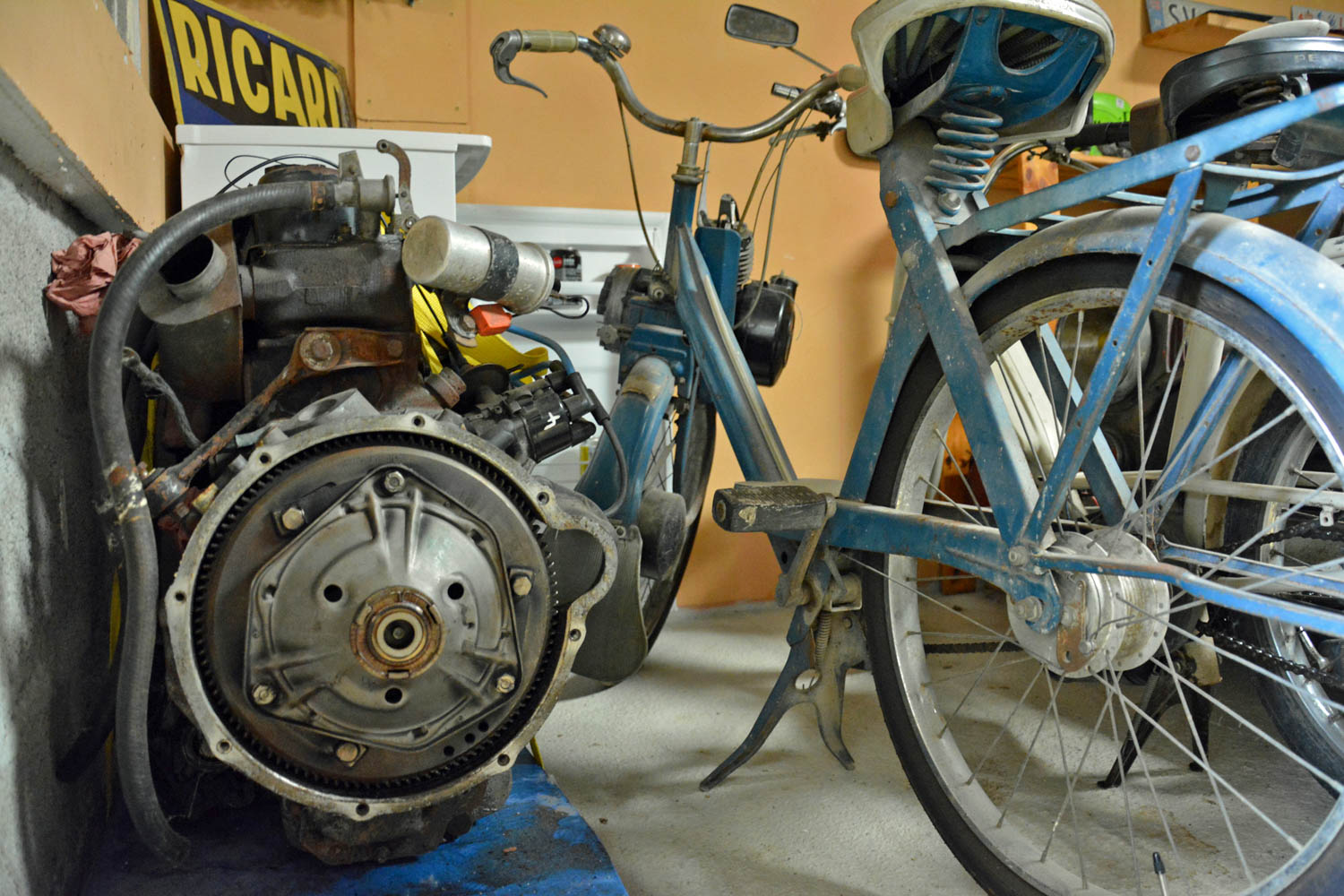Dueling 850s: The Mini’s clever packaging vs. the Fiat’s old-school layout
When new, the Fiat 850 and Morris Mini Minor 850 were two top-notch options for buyers seeking a small car that was affordable and cheap to keep running. In France, Fiat charged 8200 francs for the 850 in 1971, while the Mini set motorists back by 8990 francs. Both cost the same to register. Ultimately, drivers had to choose between the Mini’s clever packaging and the Fiat’s old-school layout.
I picked both, but I wasn’t alive in the early 1970s. The 1972 Mini arrived in my garage in 2018 after lingering in a corner of a warehouse for 38 years, and earlier this year I pulled the 1971 850 out of the yard where it had been sinking for 16 years. These dueling 850s sound like variations of the same theme, but working on both highlighted several key differences. For instance, the Fiat needs to be woken up, while the Mini has to be resurrected.
With the Fiat 850, I started on relatively solid foundations and methodically changing every wear-and-tear part one system at a time. The 847-cc four-cylinder engine started after I replaced the entire ignition system and refurbished the fuel delivery system. It still sips gas from a can, because I need to drain and clean the tank before I hook it up. I’ve moved on to the brakes in the meantime, starting with the master cylinder—refilling a just-emptied beer can with 20-year old brake fluid—and making my way to the drums. I swear, the right rear drum said, “Trick or treat!” when I removed the wheel.




I’ve fitted a new coolant tank (the old one had a giant hole in it), and I’ll continue tearing apart the cooling system as soon as I receive the parts. Everything made of or containing rubber is coming off the car, and, so far, most parts disintegrated into many brittle pieces as I removed them.
The Mini was off the road for much longer, and I’m beginning to seriously doubt that it ran when it was parked, so the only good part about it is the largely rust-free shell. Its 848-cc engine needs to be fully rebuilt, but I took a shortcut. In the interest of time, I pointed my Renault Kangoo van north and drove halfway across France to buy an allegedly good used engine (cross your fingers) from an identical car that developed terminal rust after soaking in the French Alps’ finest road salt for about 40 years. The Mini’s four-speed manual gearbox is bolted to the bottom of the engine, so I’m changing the clutch and replacing various seals before dropping it all in to avoid having to yank it out again for as long as possible. The next step will be to pull the old engine out, drop the new one in, and hook up everything.




Anyone who complains about the difficulty of working on modern cars hasn’t tried accessing the rearmost spark plug on an 850, or chased down pretty much anything under a Mini’s hood line. The 850 received an emergency redesign shortly before its 1964 introduction, which brought a reshaped rear end to unlock a higher top speed—it originally had a sloping back like the 600. This was done without giving much consideration to mechanical accessibility, so while the entire rear valance bolts off, reaching every part above the cylinder head requires an artist’s finesse and a surgeon’s patience. The Mini’s engine bay is wide open, at least once you remove the hood, but everything in it is so sardined that butchered hands are inevitable. Accessing the fuel pump feels like trying to play The Kids Aren’t Alright on a Les Paul while wearing ski gloves. Cursing at it with a British accent doesn’t help.
These two tiny, 34-horsepower project cars have at least one thing in common: parts are shockingly easy to find. The Mini is hugely popular as a restoration project, so the list of aftermarket vendors that sell new parts is as long as a 1973 Imperial. The Fiat 850 is far less popular, but it shared so many parts with the Fiat models that came before and after it that there’s nothing I haven’t been able to find… yet.









